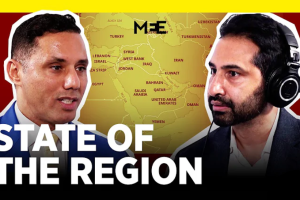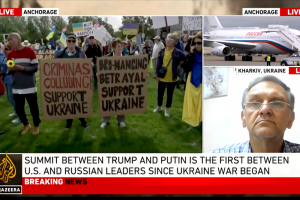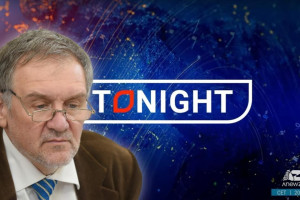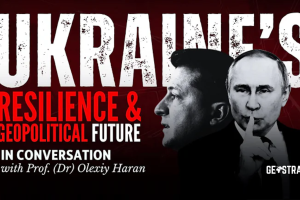Ukraine - Backsliding on Democracy
By Jeremy Druker for ISN Insights
It has been a little more than a year since Viktor Yanukovych was inaugurated as president of Ukraine, and the report card is profoundly negative. At the time of his election, many wondered whether Yanukovych might bring welcome stability and progress after years of bickering and failed reform under the veterans of the Orange Revolution.
Instead, most analysts agree, the country has not only moved backward in terms of the overall level of democracy, but precious little in the way of reform has actually been accomplished.
Since Yanukovych took power on 25 February 2010, the country has witnessed a coordinated effort to concentrate greater power in the president's hands, a campaign to harry and jail opposition leaders, a move toward more media censorship and attacks on 'unfriendly' civil society organizations.
The president and his Party of Regions now have a loyal majority in parliament and control over the constitutional court and the rest of the judicial system, law enforcement agencies and most of the local authorities. All that has combined to see Ukraine downgraded by Freedom House from "free" to "partly free" in its annual Freedom in the World rankings.
"Yanukovych started a process of reversing democratic changes in Ukraine," says Jan Pieklo, director of PAUCI, a foundation with a mission of helping Ukraine to integrate further with the West. "There is no dialogue with the opposition, no public debate with society, and parliament now plays the role of a machine voting for the bills proposed by the Party of Regions."
A group of 51 analysts surveyed in February by the Ilko Kucheriv Democratic Initiatives Foundation likewise gave an overwhelmingly critical assessment of Yanukovych's first year in office. "Political persecution of representatives of the opposition and civil society and the limitation of democratic rights and freedoms, particularly freedom of speech and the rights of citizens to peaceful demonstrations, incited the most negative reactions," the report read. "In addition to that, political analysts are deeply concerned about the excessive concentration of power in the hands of the president and the subordination of the parliament."
Among Yanukovych's supporters, those types of moves have typically been justified in the overall quest for 'stability', as the only way to escape the chaos and inaction that characterized the presidency of his predecessor Viktor Yushchenko - the hero of the Orange Revolution who ended up wasting much of his energy in power battles with Yulia Tymoshenko, his one-time ally.
"The hyper-centralized nature of the regime means that Yanukovych has inordinate influence and that everybody within the system is dependent on him," says Alexander Motyl, a professor of political science at Rutgers University and Ukraine expert. "Although I'm sure that Yanukovych is a tough politician, I strongly doubt that he truly understands what modern societies are supposed to look like, and that matters because he ultimately decides everything."
Despite all that power and the weakness of the opposition (through both the actions of the authorities and its own incompetence), Yanukovych has failed to implement major changes. The president and his supporters continue to tout each new law as 'reform'-oriented, but such legislation has not introduced systemic or structural changes. Instead new norms typically represent attempts to cement the power of the current regime and its oligarch backers. The fundamental problems facing the economy - corruption, a complex regulatory framework, high taxes - and the problems facing government administration - corruption, non-transparency, lack of accountability - have not been addressed.
The new tax code, for example, has been presented as an attempt to modernize and streamline the tax system but has increased the power of the tax police (and further opportunities for corruption). The 'reform' has hit small and medium-sized businesses hard with tough, new regulations, and tens of thousands responded by participating in large-scale demonstrations across the country last year. In contrast, critics say, various tax incentives will benefit big business and the country's rich the most.
The government also has hyped its so-called administrative reform, cutting the number of regulatory bodies from more than 100 to a few dozen. But serious efforts to increase efficiency, slash the bureaucracy and bring the system closer to EU norms did not accompany those changes.
During last year's election run-up, some analysts pointed out that it was Yanukovych's government that managed to give a fresh impetus to EU-Ukraine relations in 2006 through launching negotiations on a new agreement. Some wishful thinkers then postulated that the oligarchs themselves would push Yanukovych to improve relations with Brussels because they wanted new markets for their goods and, in general, wanted Ukraine to be seen as 'European'.
Yet these rich business people may be finding that the new regime's practices within Ukraine, like the new tax code, make them just as rich or even richer, and it makes little sense to push for change. "The oligarchs are supposed to be progressive and pro-Western, but their primary goal is retention of wealth, and that need not imply genuine reform," says Motyl.
"The talks on an association agreement with the EU have neither slowed down nor accelerated - the pace is virtually the same," says Volodymyr Yermolenko, director of EU-related projects at Internews-Ukraine, the country's biggest media NGO. "But there are some symptoms that might lead these talks to a deadlock in the end." He cited democratic backsliding, lobbying by some Ukraine businesses that prefer the status quo, and the government's "tricky games" in areas like public procurement.
Despite promises not to water down that law (adopted last year), parliament has added new ways to bypass tenders, angering the EU to such an extent that millions of dollars in aid has been temporarily suspended. There is now talk that Ukraine might end up opting to join the customs union of the Common Economic Space, a Russian initiative, a move that would almost certainly preclude the free trade zone with the EU to which Ukraine aspires.
The forecast for the country seems decidedly negative. "The frustration and dissatisfaction with the ruling elite is growing in Ukraine," said Pieklo. "The cost of living is quickly rising. People don't believe that the Party of Regions is really reforming the country; they believe that the party is simply stealing what was left."
Yet, while Ukraine may be starting to resemble the Russian 'model' to some extent, Yanukovych cannot make use of the wide range of instruments available to his Russian counterparts.
"Except for a smallish group of diehard supporters, most Ukrainians despise Yanukovych, with many considering him to be a laughing stock," says Motyl. "He cannot, like Putin, appeal to 'great power' or neo-imperialist sentiments to garner popular support. The economy is in decline and Yanukovych will not be able to buy people off with goodies (like Putin)." Motyl also cites the weakness of the army and the dramatic difference in power and influence of the Ukrainian secret services, compared with the all-powerful Russian FSB.
"A deeply unpopular regime, with few material and coercive resources, is inherently unstable and incapable of effecting major change. There will be popular protest - as we saw during the entrepreneurs' rebellion in November - and Yanukovych won't be able to stop it."










